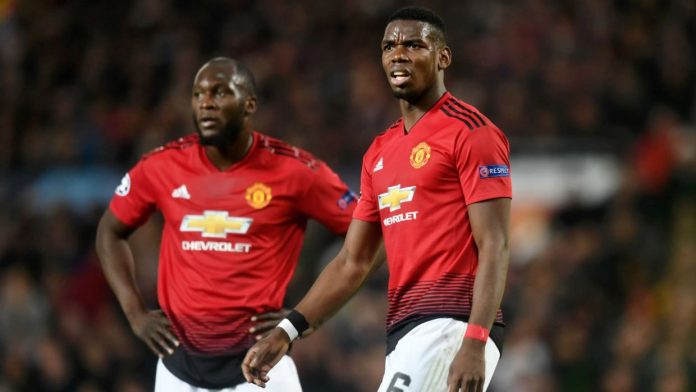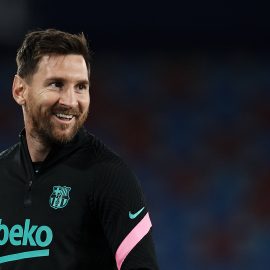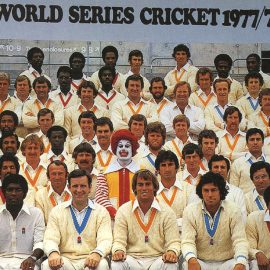Trolling the site for some interesting articles to read recently, I came across Ahmed’s article from the fourth of July of last year (side note, probably not the best day to write the article, Ahmed!). Having read the responses to the article I can see that most were negative, and so I decided to do my best to put forward some constructive criticism and make some of my own suggestions that would benefit the game in the US, that is, as opposed to just saying they suck and leaving it at that.
I’ve been most interested in the MLS and football in the US for several years now. And I’ve done some research. From reading into the history of the game stateside, to managing in the MLS in the Football Manager series, I’ve gotten an overview and I think I can make some informed offerings. So here they are:
1. DROP (OR REDESIGN) THE DESIGNATED PLAYER RULE
Designed solely to allow David Beckham to play in a league structured around the strict control of players’ wages, the rule has had only one beneficial impact: the arrival of some household names to make the game more attractive both within and outside of the United States. The problem with this however, is that most of the arrivals are either players well past their prime looking for one final payday (read: Freddie Ljungberg) or players who were once considered ‘the next big thing’ and failed to make it (read: Denilson and Claudio Lopez). With the exceptions of Juan Pablo Angel (quite possibly still in his prime based on recent form) and Cuauhtémoc Blanco, none of the players who have arrived under this ruling have made any real impact. Instead they marginalise the Americans playing in the squad who earn up to ten times less than these so-called superstars.
The solution that the MLS bigwigs have dreamt up to improve the quality of players in the league is in fact the opposite of what they should be doing. A revision of developmental contracts and indeed most senior contracts to ensure that young Americans coming into the league are appropriately recompensed is the clear way forward for MLS. Without this, the best young American players will continue to leave the country or take up a different sport in which they can earn far more money. It’s no coincidence that the country’s best and brightest have been seeking pastures new in far greater numbers over the past few years. Last year saw Jozy Altidore, Brad Guzan and Maurice Edu among others leave MLS, and none have made a particularly strong impact at their new clubs. But the fact is that they earn far more money than they did with their old ones.
2. ENCOURAGE MORE AMERICANS TO RETURN HOME
This rather goes hand in hand with dropping the designated player rule. I welcomed the decisions by Seattle and San Jose respectively to bring Kasey Keller and Bobby Convey to MLS and this needs to be done with far more aplomb in the future. Not all Americans make it abroad (note that I am not including Keller in that statement). Look no further than Landon Donovan. MLS should offer an attractive alternative to playing reserve team football in Europe. Indeed players such as Michael Bradley and Kenny Cooper also made the decision to move home. While the clubs in the MLS are clearly making improved efforts to bring these players in, more should be done to make playing in the MLS seem more of a natural choice than last resort.
3. DON’T ATTEMPT TO ‘AMERICANIZE’ THE SPORT
It’s a sad but true fact that corporate America tend to Americanize almost all popular forms of entertainment imported from around the world. The film industry are the worst culprits – remaking French and British films like it’s going out of fashion, take a note Hollywood; it’s rarely been IN fashion, but this has existed within football since the days of Pele. Cheerleaders, extravagant half-time shows and penalties from the halfway line don’t improve the standard of the game. Departing from the official FIFA rulebook only stands to make the game within America more of a laughing stock; something that thankfully MLS seems to have realised with the book being followed quite closely in recent years. But it’s important that this is the status quo and MLS doesn’t resort to deviating from what most of the world recognise as the modern game in order to draw in a few more punters.
4. INVEST IN GRASS ROOTS
From grass roots to the national team, the game needs this natural progression just as badly in the United States as it does in the United Kingdom. For models of this sort of thing in action, look no further than Brazil in South America and Spain in Europe, where emphasis is placed on the development of the under-17, under-19, under-20 and under-21 squads right up to the full team. It’s hardly a coincidence that both nations’ international sides are currently so strong. While America offers entirely different routes in terms of the way in which promising young players develop, (i.e. playing for their high school team then going to college on a sports scholarship, then being drafted to the professional league) soccer is much lower on the pecking order both in high school and college when compared to the traditional ‘big three’; football, basketball and baseball. This comes despite the fact that the ‘soccer mom’ phenomenon has been tremendously strong in the US for much of the past decade.
More structure, from kids playing little league, right through to the MLS, should be put in place to ensure much stronger interest from American youth in playing soccer professionally. I know that high school soccer teams are unlikely to ever usurp the basketball or football teams, and the same is true of college sides. But more can be done. This point is probably the most contentious; one could argue that there’s simply no point given that more young Americans will grow up wanting to play gridiron, basketball or baseball. But at the very least the USSF could take a more active interest in getting kids to take up the game instead, surely?
5. INVESTIGATE THE POSSIBILITY OF A LEAGUE PYRAMID
Along the same lines as point 4, MLS should work more closely with the USL (United Soccer Leagues). Promotion and relegation are cornerstones to the game throughout the world. America (together with Canada) has the size and wealth to incorporate a league pyramid system encompassing at least three or four divisions. Why not at least consider the possibility? Promotion and relegation dogfights would at the very least provide something for the fans to sink their teeth into, and the traditional American sports system of the playoffs can easily be found in leagues throughout Europe, consisting either of a solely promotion playoff or a promotion/relegation playoff. This could easily be incorporated into the American game too.
The benefit of a pyramid not only potential excitement for fans but would also counteract the somewhat elitist attitude of MLS, where potential sides are forced to jump through many hoops just to set up a franchise and even then there is no guarantee. While these hoops are designed to ensure that the teams and owners behind them potentially entering MLS have long-term plans, there are many sides already playing in the USL who have been around for many years with solid fan bases. Indeed, before Seattle joined MLS another version of the Sounders had been kicking around the USL for a few years. Many of the candidate cities for the 2011 expansion already have sides in the USL. Why force them to essentially recreate themselves when the teams are already there?
So there are my five points. I’ve tried to think them through as carefully as I can. But I know people will find holes in my logic somewhere. I do truly have the best interests of the game at heart however, so be gentle!
Add Sportslens to your Google News Feed!






